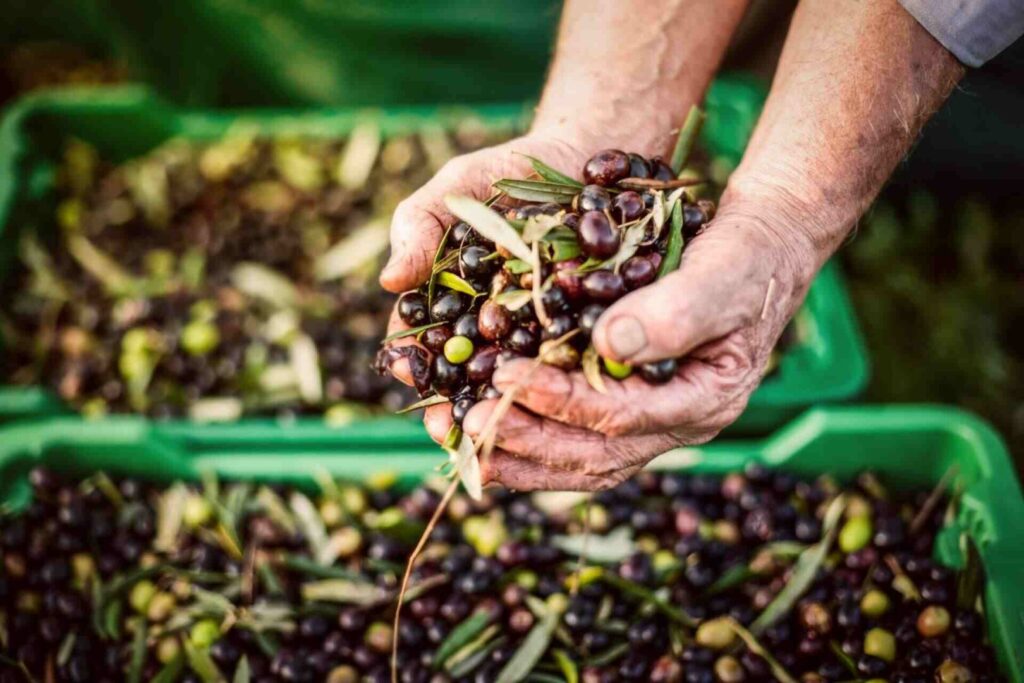The olive harvest in Greece typically begins in October and extends through January, varying by region and weather conditions. This age-old tradition unites families, many of whom prefer manual picking to ensure the integrity of the fruit. Nets are spread beneath the trees as olives are gently shaken down by hand or with specialised tools. After harvesting, the olives are taken to local presses to be transformed into rich, flavorful olive oil. Central to Greek cuisine and culture, olive oil is more than just an agricultural product—it embodies Greece’s profound connection to the land and its enduring heritage. The olive harvest in Greece brings communities together, emphasising the importance of this essential tradition.
The olive tree holds profound cultural, historical, and economic significance in Greece. It has been a symbol of peace, wisdom, and prosperity since ancient times, deeply rooted in Greek mythology and tradition. The olive tree is believed to have been a gift from the goddess Athena to the city of Athens, signifying its vital role in Greek life. Economically, olive cultivation has been a cornerstone of the Greek agricultural sector for millennia, producing some of the world’s finest olive oils and table olives. Its resilience and longevity symbolise endurance, and the olive tree continues to be a cherished part of Greece’s identity, connecting past generations with the present.
In Greece, olive oil is not merely an ingredient but a symbol of health and tradition. A cornerstone of the Mediterranean diet, it is used abundantly in everything from fresh salads to slow-cooked dishes, offering essential nutrients while enhancing flavour. It is crucial in promoting long-term well-being and is a fundamental element of Greek culinary tradition.
The olive harvest in Greece is a celebration of nature’s bounty and a testament to the skill and dedication of local farmers who work tirelessly to produce high-quality olives.
Join us for the olive harvest in Greece and experience firsthand the joy of gathering olives, learning about the process of olive oil production, and tasting the fruits of your labour.
Participating in the olive harvest in Greece is more than just an agricultural activity; it is an opportunity to engage with a living tradition. The harvest fosters community, uniting people in a shared purpose that celebrates connection and the land. This hands-on experience allows you to embrace nature and work alongside locals to collect olives destined to become Greece’s finest olive oil. As you take part in the harvest, you’ll gain the satisfaction of contributing to something meaningful while enjoying the beauty of the countryside and immersing yourself in a vibrant culture that embodies a healthy, joyful way of life.
Understanding the Olive Harvest in Greece
Understanding the olive harvest in Greece is key to appreciating the cultural heritage surrounding this cherished crop.
Discover the Joy of Olive Harvest
Unwind with a Hands-On Experience
and Visit Olive Oil Producers in Greece
The olive harvest in Greece provides a unique opportunity to learn about the different varieties and cultivation methods used in the region.
Olive Harvest in the Ionian Islands
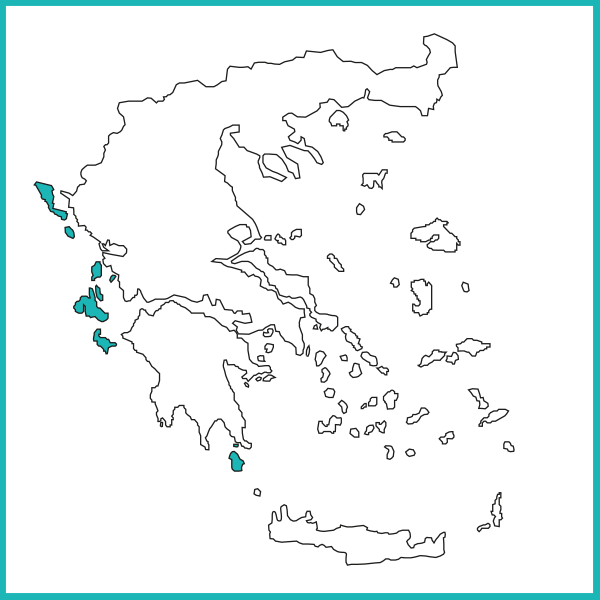
In the Ionian Islands, the olive harvest typically begins in November and can extend through January, with the region known for its dense olive groves, particularly on Corfu and Zakynthos. The Lianolia variety, dominant in Corfu, is small and yields high-quality olive oil with a fruity and mild flavour. Harvesting is usually done by hand or with mechanical combs, with nets spread beneath the trees to catch the olives. The islands’ mild, humid climate contributes to a longer growing season, and the olives are quickly taken to local presses for oil extraction. Olive farming is a vital part of the Ionian Islands’ economy and culture, producing olive oil renowned for its unique taste and aroma.
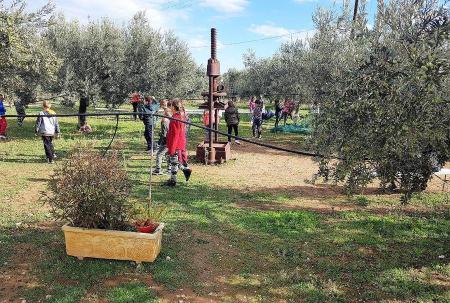
Participating in the olive harvest in Greece allows tourists to connect with local traditions and understand the significance of olives in the Greek diet.
From 11€/person
In the Peloponnese, the olive harvest in Greece is particularly renowned, offering visitors a chance to taste some of the finest olive oils produced.
The traditions surrounding the olive harvest in Greece date back centuries, reflecting the deep cultural roots associated with this beloved agricultural practice.
During the olive harvest in Greece, families come together to share in the excitement and hard work of collecting olives.
Visitors to Greece can immerse themselves in the culture of the olive harvest and gain a deeper appreciation for this essential agricultural practice.
Olive Harvest in the Peloponnese
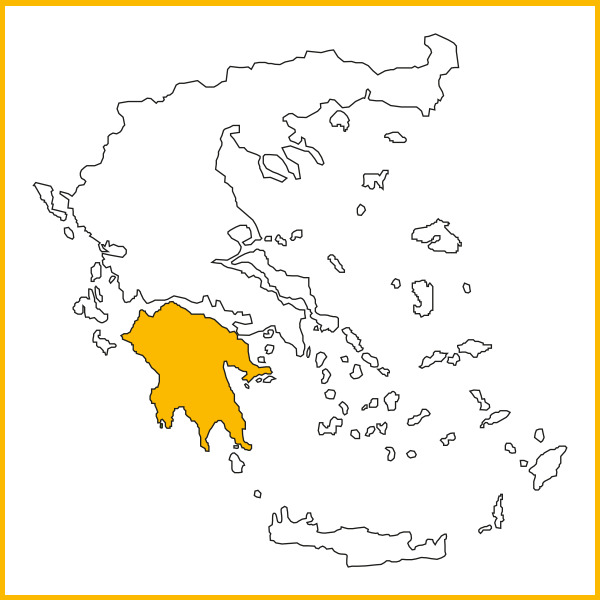
In the Peloponnese, the olive harvest is renowned for producing some of Greece’s most prized olive varieties, particularly the Koroneiki and Kalamon (Kalamata) olives. The Koroneiki olive, known for its small size and high oil yield, is harvested from October to January. It is celebrated for producing one of the finest extra virgin olive oils, rich in antioxidants and robust in flavour.
The Kalamon olive, larger and meatier, is typically harvested later in the season and is famous for its use as table olives, with its deep purple hue and distinctively rich taste.
In Macedonia, the olive harvest in Greece showcases the diversity of olive varieties, making it an exciting region to explore.
In addition, the Manaki variety is also cultivated in regions like Argolis, contributing to high-quality oil with a more delicate flavour.
Harvesting methods range from traditional handpicking to mechanical combs, ensuring the olives are carefully collected and taken to local mills for immediate pressing. These olive varieties are integral to the Peloponnesian agricultural economy and culinary tradition, making the region one of Greece’s top producers of olive products.
The olive harvest in Greece also highlights the local economy’s reliance on olive cultivation, providing livelihoods for many.
For those travelling to Greece, participating in the olive harvest is an unforgettable experience that connects them to the land.
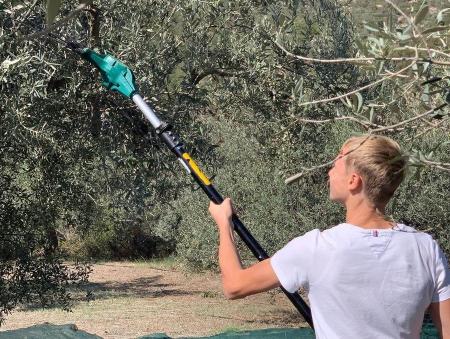
From 8€/person
Olive Harvest in Macedonia
The olive harvest in Greece is a season of joy, community, and the celebration of nature’s gifts.
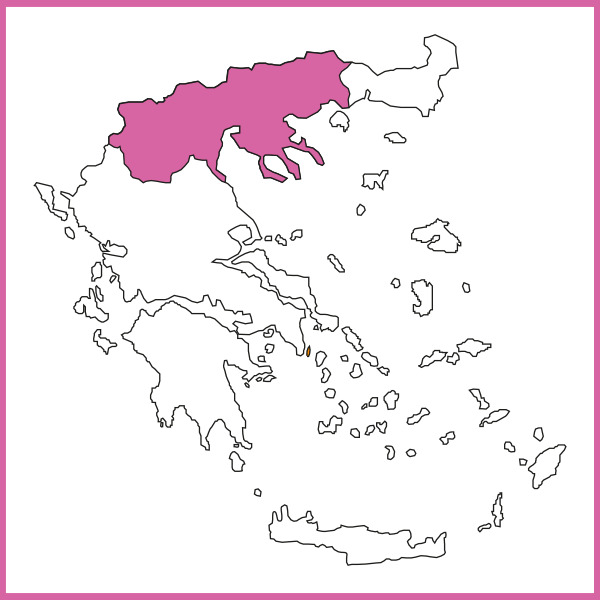
In Macedonia, northern Greece, the olive harvest typically occurs between October and December, with the region known for its Halkidiki and Chondroelia olives.
Halkidiki olives, large and green, are primarily used as table olives, while Chondroelia olives are prized for their oil production. The harvest combines traditional handpicking and modern mechanical methods, with nets placed under the trees to catch the fruit. The olives are quickly transported to local mills to ensure freshness and quality.
Olive cultivation in Macedonia plays a key role in the local economy, combining centuries-old practices with modern techniques to produce premium olive oil and table olives.
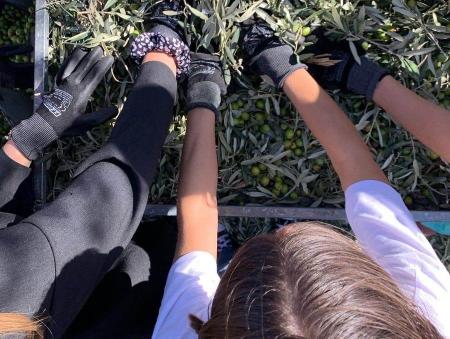
From: 11€/person
Olive Harvest in Central Greece
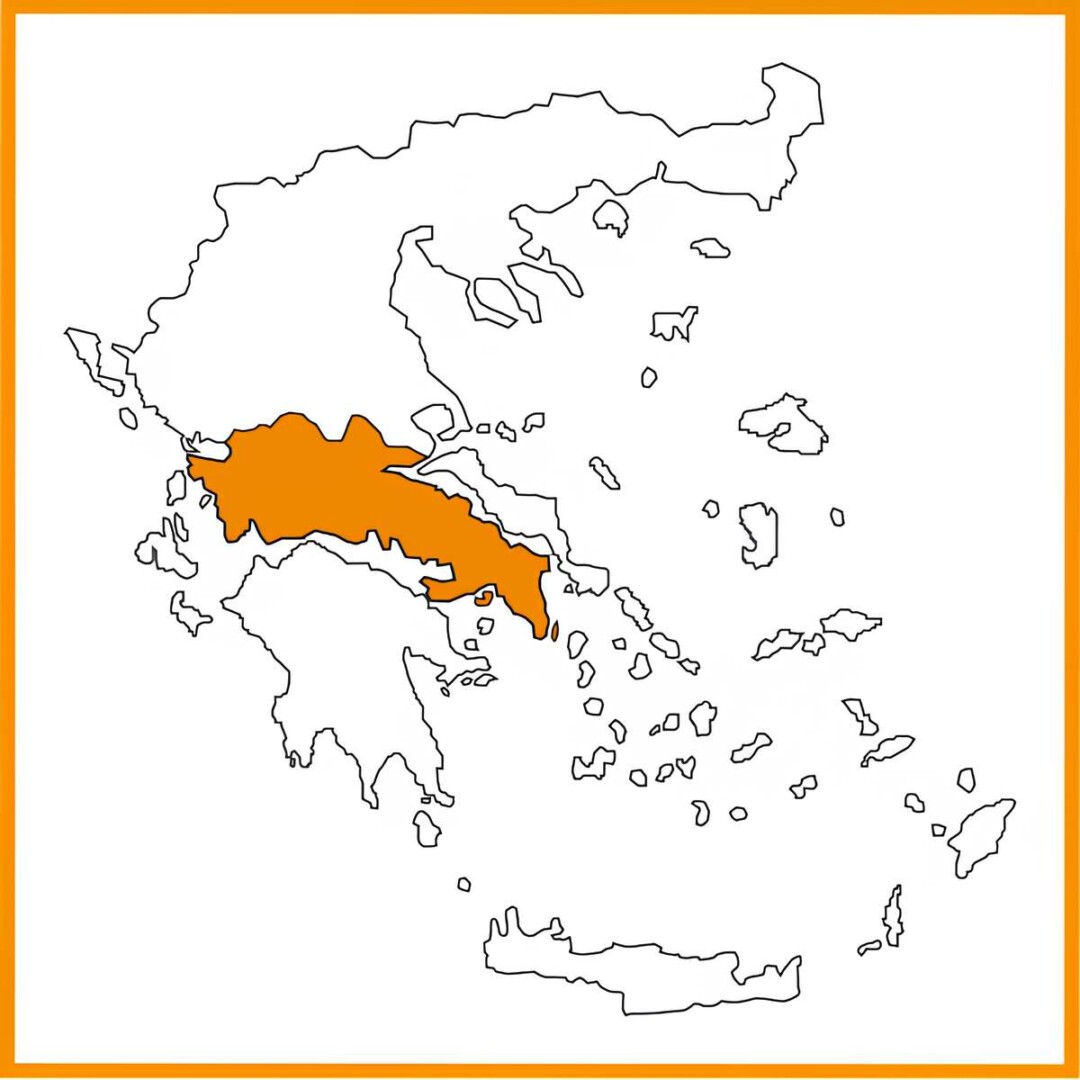
In Crete, the olive harvest in Greece is not just about collecting olives but also about embracing the local culture and traditions.
The olive harvest is a significant agricultural event in central Greece, particularly in regions like Phocis (Fokida) and Boeotia. In Phocis, the famous Amfissa olive is harvested for its large size and rich flavour. The harvest typically starts in November and can last through December. The traditional method of handpicking or using small rakes to gently comb the olives from the trees is common, preserving the quality of the fruit. In Boeotia, similar methods are used, with an emphasis on producing high-quality extra virgin olive oil.
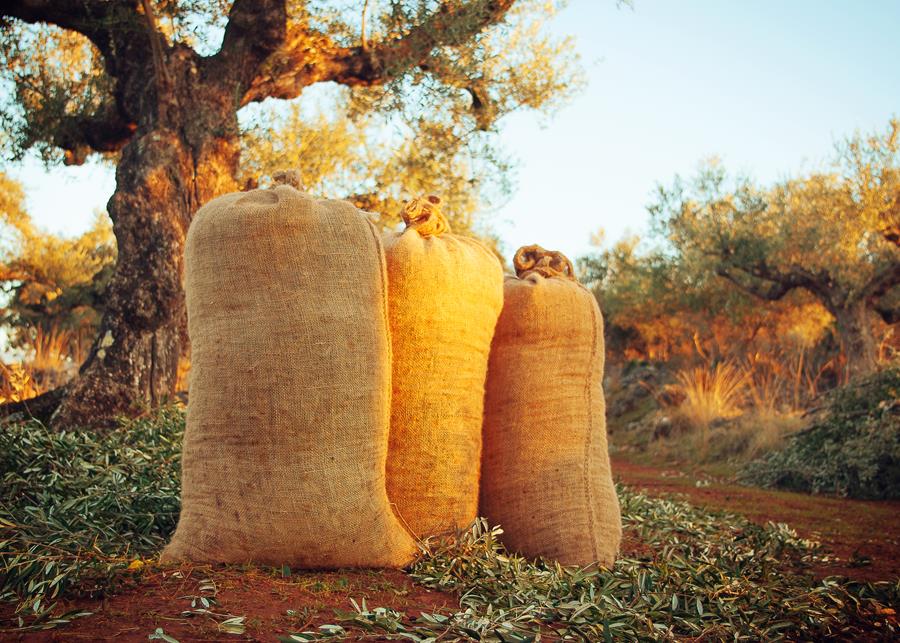
Experience the olive harvest in Greece and create lasting memories while contributing to this timeless tradition.
From: 6€/person
Olive Harvest in Crete
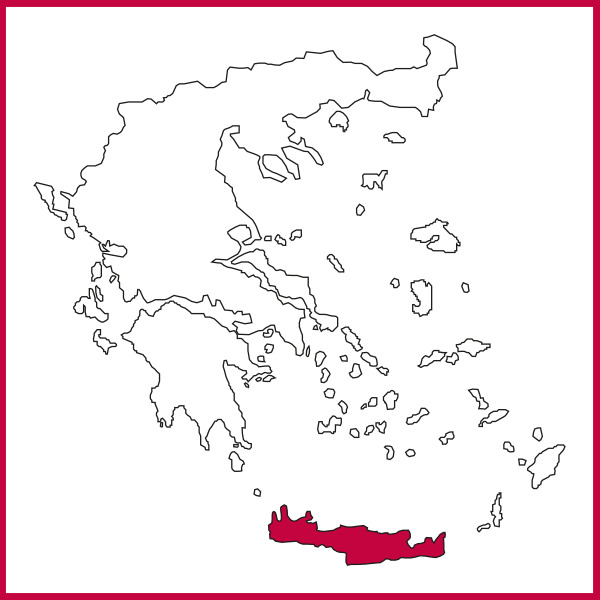
In Crete, the olive harvest is a major agricultural event, typically starting in late November and lasting through January. The island is renowned for its Koroneiki olive variety, which produces a robust, aromatic extra virgin olive oil, highly valued both locally and internationally. The harvest is usually done by hand or with mechanical shakers, and nets are spread beneath the trees to collect the olives. Olive farming in Crete is deeply rooted in the island’s culture and history, with many families maintaining groves that have been passed down for generations. The quick transport of freshly harvested olives to local presses ensures the production of high-quality oil, a cornerstone of the Cretan diet and economy.
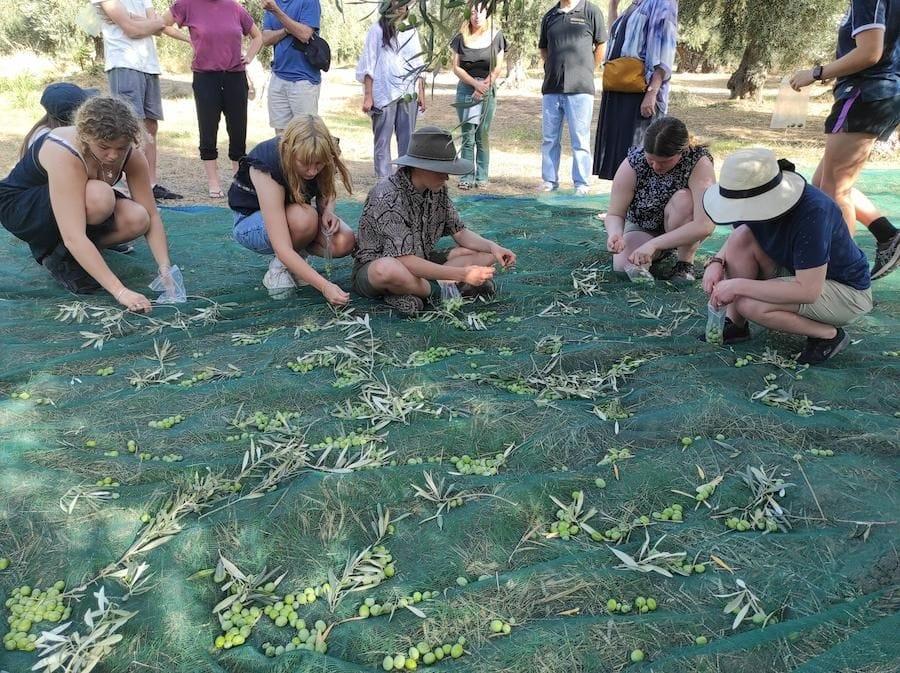
From: 3€/person

